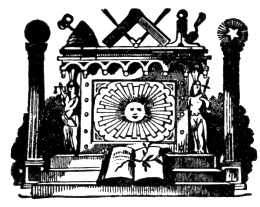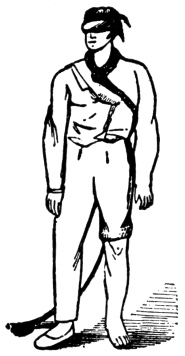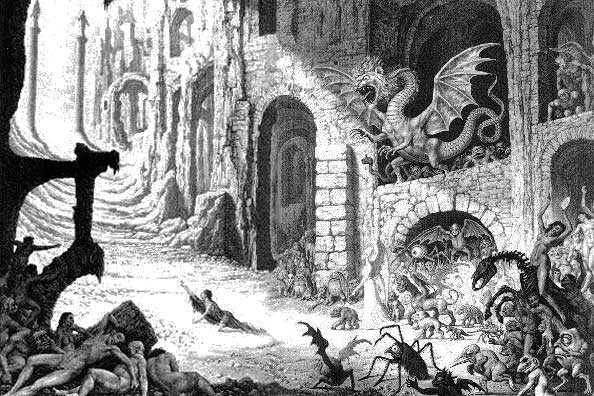Q. Brother. you informed me that I should know you by certain signs, and tokens, and words, and the points of your en-trance. You have already satisfied me as to the signs and words. I now require you to explain to me the points of your entrance: how many, and what are they?
A. They are four: the Guttural, the Pectoral, the Manual, and the Pedestal, which allude to the four cardinal virtues, viz.; Temperance, Fortitude, Prudence, and Justice.
Temperance is that due restraint upon our affections and passions which renders the body tame and governable and frees the mind from the allurements of vice. This virtue should be the constant practice of every Mason, as he is thereby taught to avoid excess, or contracting any licentious or vicious habit, the indulgence of which might lead him to disclose some of those valuable secrets which he has promised to conceal and never
p. 55
reveal, and which would consequently subject him to the contempt and detestation of all good Masons. See “Guttural,” (p. 248.)
This virtue alludes to the Mason’s obligation, which is the Guttural.
Fortitude is that noble and steady purpose of the mind, whereby we are enabled to undergo any pain, peril, or danger, when prudentially deemed expedient. This virtue is equally distant from rashness and cowardice; and, like the former, should he deeply impressed upon the mind of every Mason, as a safeguard or security against any illegal attack that may be made, by force or otherwise, to extort from him any of those secrets with which he has been so solemnly intrusted; and which virtue was emblematically represented upon his first admission into the Lodge, on the point of a sharp instrument pressing his naked left breast. This alludes to the Pectoral.1
Prudence teaches us to regulate our lives and actions agreeably to the dictates of our reason, and is that habit by which we wisely judge, and prudentially determine, on all things relative to our present, as well as to our future happiness. This virtue should it be the invariable practice of every Mason never to for the government of his conduct while in the Lodge, but also when abroad in the world. It should be particularly attended to in all strange and mixed companies, never to let fall the least sign, token, or word, whereby the secrets of Masonry might be unlawfully obtained. Especially, brother in Masonry, you should always remember your oath as an Entered Apprentice, while kneeling at the altar, on your naked left knee, your left hand supporting the Holy Bible, square, and compasses, your right resting thereon, which alludes to the Manual.
Justice is that standard or boundary of right which enables us to render to every man without distinction his just due. This virtue is not only consistent with Divine and human laws, but is the very cement and support of civil society; and as Justice in. a great measure constitutes the real good man, so should it be the invariable practice of every Mason never to deviate from the minutest principles thereof.
The charge you received while standing in the northeast corner of the Lodge, your feet forming a right angle, was an allusion to the Pedestal.
Q. How did Entered Apprentices serve their Master in ancient times, and how should they in modern?
A. With freedom, fervency, and zeal.
p. 56
Q How were they represented?
A. By Chalk, Charcoal, and Clay. (See Webb’s Monitor.)
Q. Why were they said to represent them?
A. Because it was said there was nothing more free than chalk, which, under the slightest touch, leaves a trace behind; nothing more fervent than charcoal to melt–when well lit, the most obdurate metals will yield; nothing more zealous than clay, or our mother earth, to bring forth.
CHARGE AT INITIATION INTO THE FIRST DEGREE
BROTHER: As you are now introduced into the first principles of Masonry, I congratulate you on being accepted into this ancient and honorable order; ancient, as having existed from time immemorial; and honorable, as tending in every particular so to render all men who will conform to its precepts. No human institution was ever raised on a better principle, or more solid foundation; nor were ever more excellent rules and useful maxims laid down than are inculcated in the several Masonic lectures The greatest and best of men in all ages have been encouragers and promoters of the art, and have never deemed it derogatory to their dignity to level themselves with the fraternity, extend their privileges, and patronize their assemblies.

Moe is the founder of GnosticWarrior.com. He is a father, husband, author, martial arts black belt, and an expert in Gnosticism, the occult, and esotericism.






